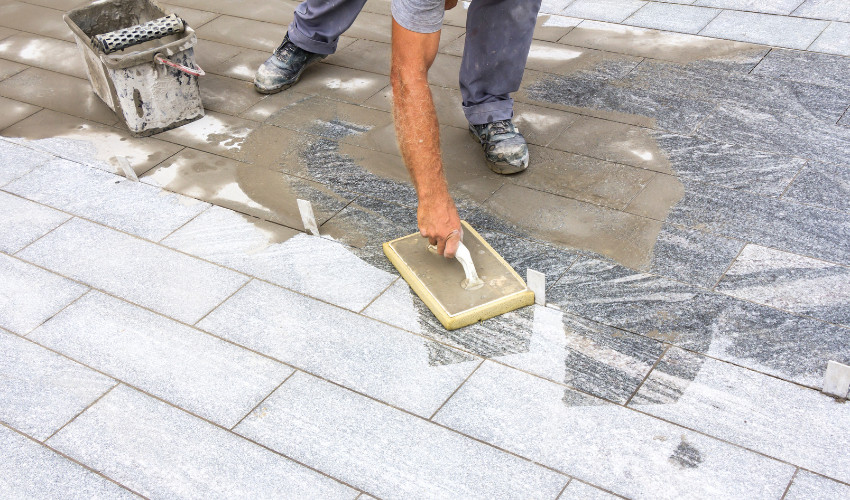
Different Types of Grout and Their Uses
Grout is a crucial element in tile and stone installations, as it fills the gaps between the tiles, providing stability, support, and an aesthetically pleasing finish. However, not all grout is created equal, and understanding the different types of grout available is important for choosing the right one for your project. Below, we’ll explore the various types of grout and the projects they are commonly used for.
Unsanded Grout
Unsanded grout is a smooth and fine-textured grout that is commonly used for narrow grout joints, typically 1/8 inch or less. Here are some key points about unsanded grout:
- Tile Applications: It is ideal for use with delicate or highly polished tiles, such as marble, glass, or metal, as it minimizes the risk of scratching.
- Projects and Applications: Unsanded grout is commonly used in bathroom walls, backsplashes, and other vertical tile installations with narrow grout lines.
- Consistency: Unsanded grout has a smoother consistency, making it easier to spread and work with in tight spaces.
Sanded Grout
Sanded grout is a type of grout that contains fine sand particles, providing additional strength and stability. Here are some key points about sanded grout:
- Tile Applications: Sanded grout is suitable for wider grout joints, typically 1/8 inch to 1/2 inch or more, and for tiles with irregular edges or uneven surfaces.
- Projects and Applications: It is commonly used for flooring installations, countertops, and other horizontal surfaces where durability and strength are important.
- Consistency: Sanded grout has a coarser texture due to the added sand, which helps prevent shrinkage and cracking.
Epoxy Grout
Epoxy grout is a highly durable and stain-resistant grout that consists of epoxy resins and a hardener. Here are some key points about epoxy grout:
- Tile Applications: Epoxy grout is suitable for a wide range of tile applications, including high-traffic areas, wet environments, and areas prone to staining or chemical exposure.
- Projects and Applications: It is commonly used in commercial settings, such as hospitals, restaurants, and industrial facilities, as well as in residential applications where longevity and stain resistance are desired.
- Benefits: Epoxy grout is highly resistant to stains, chemicals, water, and mold. It is also less likely to crack or shrink compared to cement-based grouts.
Polymer-Modified Grout
Polymer-modified grout is a blend of Portland cement, fine sand, and polymers, providing enhanced strength and flexibility. Here are some key points about polymer-modified grout:
- Tile Applications: Polymer-modified grout is suitable for a wide range of tile types and grout joint sizes, offering versatility in various tile installations.
- Projects and Applications: It is commonly used in both residential and commercial applications, including floors, walls, showers, and outdoor areas.
- Benefits: Polymer-modified grout offers improved adhesion, flexibility, and resistance to cracking, making it a reliable choice for areas that may experience slight movement or vibration.
Stain-Resistant Grout
Stain-resistant grout is designed to resist staining and discoloration caused by dirt, spills, or chemicals. It is typically available in both sanded and unsanded variations, incorporating special additives to repel stains. Here are some key points about stain-resistant grout:
- Tile Applications: Stain-resistant grout is suitable for various tile installations, particularly in areas prone to staining, such as kitchen countertops, backsplashes, and high-traffic floors.
- Projects and Applications: It is commonly used in residential kitchens and bathrooms, as well as in commercial settings where spills and stains are a concern.
- Benefits: Stain-resistant grout is formulated to repel stains, making it easier to clean and maintain the appearance of the grout lines over time.
Selecting the right type of grout is essential for achieving a successful and long-lasting tile or stone installation. Consider the size of the grout joints, the type of tiles or stones being used, the desired durability, and the specific conditions of the project.
